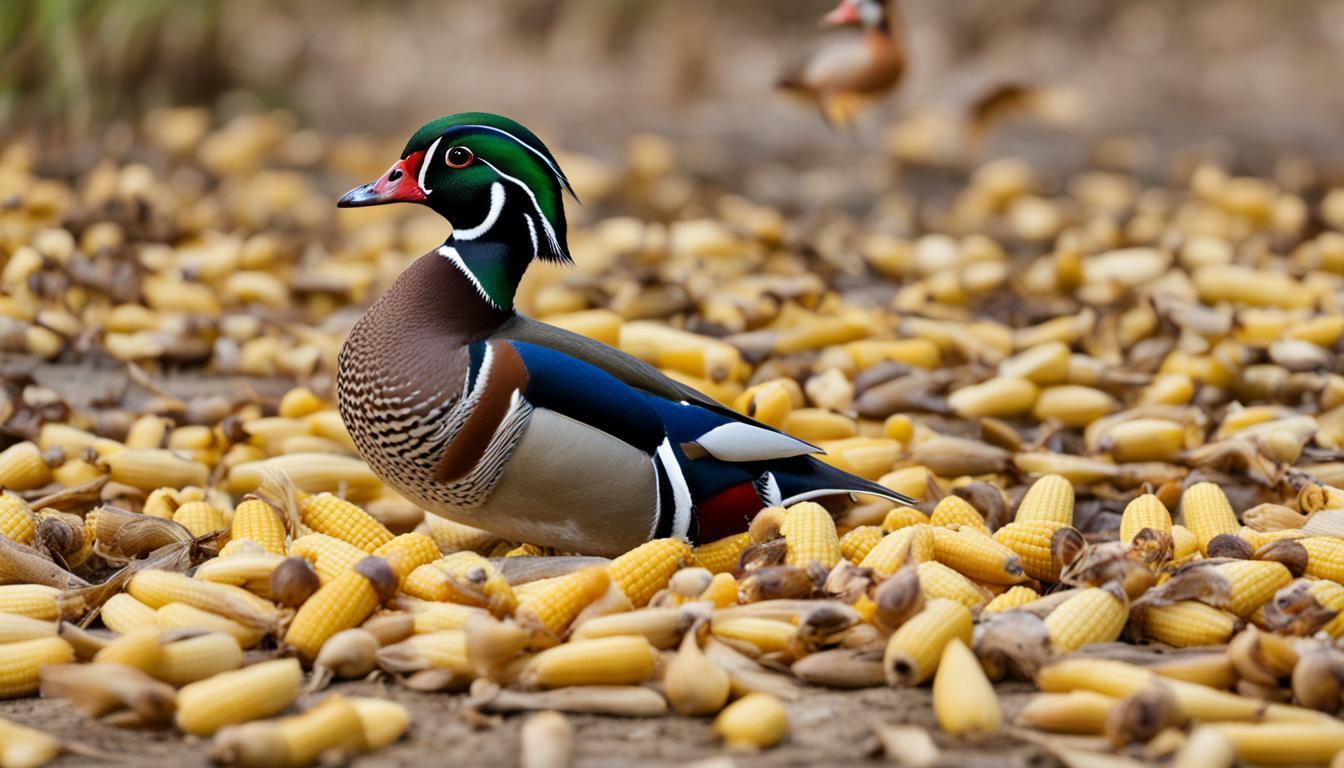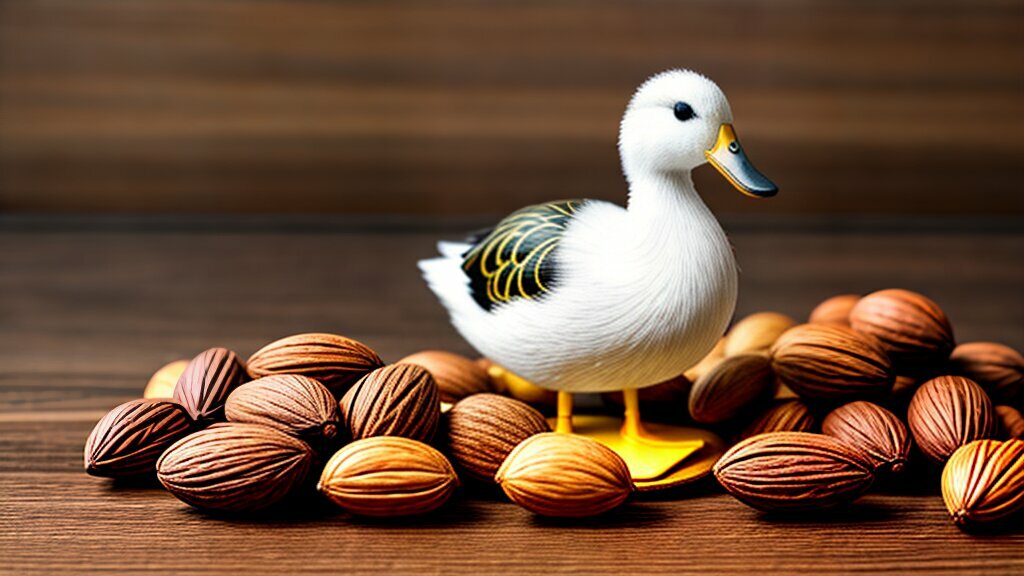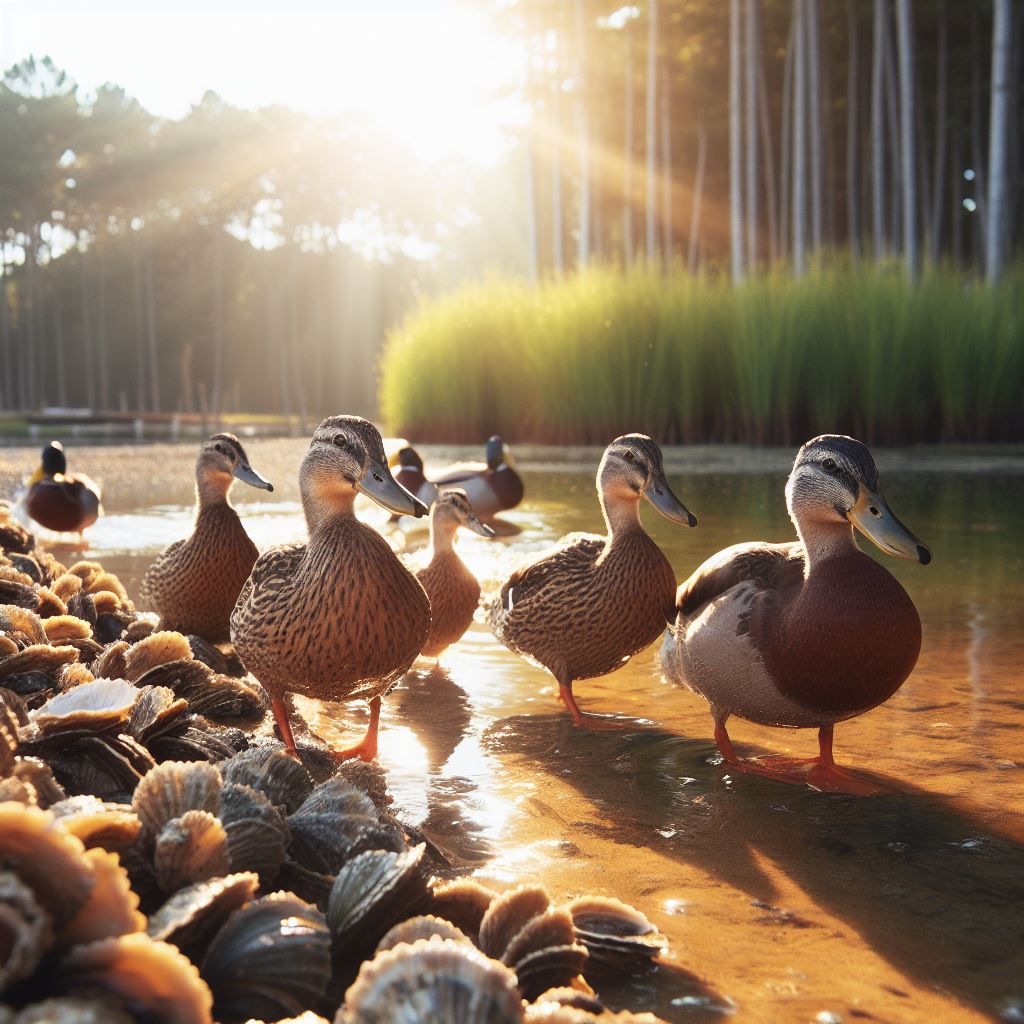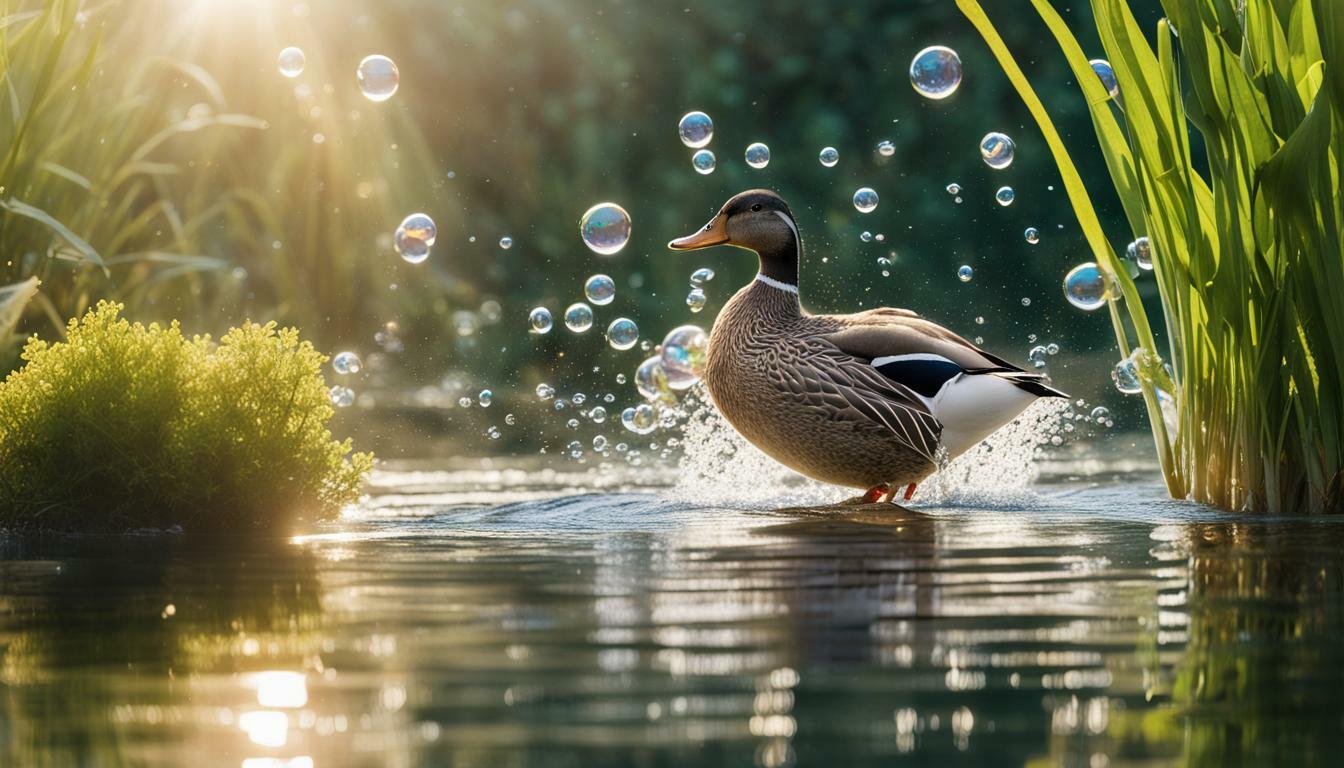Do Wood Ducks Eat Corn? Exploring Duck Feeding Habits

Table of content:
Wood ducks are stunningly beautiful waterfowl known for their iridescent plumage. As one of the most colorful duck species, they are a delight to watch as they frequent wooded swamps and rivers across North America.
With their natural habitat shrinking, wood ducks are increasingly encountering human environments like parks and backyards. This leads many people to wonder – do wild wood ducks eat corn? Let’s find out!
Do Wild Wood Ducks Look for Corn in Nature?
Corn is not a natural part of the wood duck diet. But they may nibble on it if they find corn kernels in the wild.
Native Americans have cultivated corn for thousands of years. So wood ducks today have more access to corn if their habitat borders corn fields.
However, wood ducks do not actively seek out corn in the wild. Even if available, corn makes up a very small portion of their diet.
They obtain a well-balanced nutrient intake from native plants suited to their digestive system. Corn provides calories but lacks many vitamins, minerals and protein sources wood ducks require.
Overall, wild wood ducks may opportunistically eat corn but do not depend on it as a significant food source.
What Type of Corn Do Wood Ducks Eat in the Wild?
If wood ducks stumble upon corn in the wild, they will eat any form they can access. This includes:
Whole Kernels
Wood ducks will swallow whole corn kernels they find. Their muscular gizzard helps break down and grind up indigestible foods.
So while not a natural food, wood ducks can obtain calories and energy from whole corn kernels.
Cracked Corn
Older, dried corn may crack open on the cob. Wood ducks will pick out and consume these cracked corn pieces.
The fragmented form is easier to digest than whole kernels. This makes the nutrients more bioavailable.
Corn Flour
During harvest, corn spillage results in fine corn flour around fields. Wood ducks probing the ground will ingest this corn flour.
The very fine texture makes it easy to digest. But the flour form is less energy dense than intact kernels.
Overall, wood ducks will consume any corn form they come across incidentally. But it does not provide a balanced diet and is not sought out purposefully.
Is It Okay to Offer Corn to Wood Ducks?
Many well-meaning people enjoy feeding wild birds. A common practice is offering corn to wood ducks that visit yards and parks. But is this actually beneficial for them?
There are a few factors to consider regarding the safety of feeding corn to wood ducks:
Nutritional Value
While corn provides carbohydrates for energy, it lacks balanced nutrients. An excess of corn in the diet can lead to deficiencies over time.
A varied diet of seeds, greens, vegetables, and insects is healthier for fulfilling all of a wood duck’s nutritional requirements.
Digestive Issues
The digestive system of wood ducks is adapted to their natural foods. An excess of corn could potentially lead to crop impaction or other issues.
Whole kernels in particular may overwhelm the gizzard if they are unable to grind them small enough.
Dependency
Regularly feeding wood ducks can make them reliant on humans as a food source. They may abandon natural foraging behaviors.
This creates issues if the artificial feeding is stopped and the birds can no longer find adequate food on their own.
Safety
Congregating at artificial feeding areas can increase the risk of disease transmission between ducks.
It also puts them at higher risk of predation since the area is predictable.
Legality
In many areas, there are laws against feeding wild waterfowl like wood ducks. This is to prevent issues for both people and wildlife.
So while corn itself is not toxic, there are many reasons it may be detrimental to wood ducks rather than beneficial. It’s best not to feed them corn or make them reliant on handouts.
Do Wood Ducks Prefer Whole Kernels or Cracked Corn?
Wood ducks do not have an inherent preference between whole kernel corn versus cracked corn. Their main goal is obtaining calories.
However, the form of corn can impact how digestible it is:
Whole Kernels
Wood ducks can swallow whole kernels. The gizzard breaks them down over time. But whole kernels are harder to digest and have a lower surface area for nutrient absorption. The water-resistant pericarp shell of whole kernels also makes nutrients less accessible.
Cracked Corn
Cracked corn has more surface area exposed for digestive enzymes to access nutrients. The starch inside is also more readily digested than the intact pericarp of whole kernels.
So while wood ducks don’t favor one form of corn over another, cracked corn provides more usable calories and nutrients per gram. This may make it marginally more beneficial as an incidental food source.
However, neither whole nor cracked corn should make up a substantial part of the wood duck diet. A diverse diet of natural foods is essential for their health.
Can an Excess of Corn Impact Wood Ducks Negatively?
Corn is a high carbohydrate, calorically dense food. But it lacks complete nutrition for wood ducks. While occasional corn consumption is unlikely to harm them, excessive amounts can negatively impact wood ducks:
Nutrient Deficiencies
Over-reliance on corn could lead to vitamin and mineral deficiencies over time. This includes amino acids for protein production.
Corn’s simple carbohydrates may also disrupt healthy gut microbiome populations.
Digestive Problems
The high starch content and difficult to digest pericarp could irritate the digestive tract. Birds may suffer crop swelling, GI stasis or prolapses.
Too much hard corn could also overload the gizzard’s grinding ability. This might lead to impactions.
Obesity & Fatty Liver Disease
With over 600 calories per 100 grams, corn is very energy dense. Excess consumption could cause obesity and associated health issues like liver disease.
Behavioral Changes
Dependence on human feeding leads to changes away from natural foraging behaviors. This can leave them unable to feed themselves adequately.
Excessive corn consumption is clearly not healthy for wood ducks. The natural varied diet they have evolved eating is ideal for nutrition. Corn should only be an incidental food source, not a dietary staple.
What Vitamins & Minerals Do Wood Ducks Get From Corn?
While corn is high in carbohydrate calories, its micronutrient content is low and poorly bioavailable.
Here are some of the main vitamins and minerals wood ducks can obtain from corn:
- Vitamin E – Corn contains some tocopherols which provide vitamin E antioxidant activity. However, corn is not a particularly rich source compared to nuts and seeds.
- Thiamin – Also known as vitamin B1, this is present in corn, though processing and pericarp fiber reduce bioavailability.
- Folate – Corn kernels provide some of this B vitamin. However, the DFEA form has very low bioavailability.
- Phosphorus – Corn contains organic phosphorus compounds, predominantly bound in phytic acid which is poorly digested.
- Potassium – This essential mineral is present in corn, though at lower levels than sodium. The ratio between them is not ideal.
Overall, while corn provides some vitamins and minerals, they are typically not in highly bioavailable forms. And corn is completely lacking in key nutrients like protein, omega-3s, and many antioxidants.
A varied whole foods diet will provide a much broader spectrum of vitamins, minerals, amino acids, and other beneficial phytonutrients essential to wood duck health. Corn should only supplement this, not replace nutritious natural foods.
Final Thoughts
Wood ducks are amazing birds perfectly adapted to their wetland habitats. While they may opportunistically nibble on corn they find in the wild, it is not an ideal food. Corn lacks many nutrients they require and is difficult to digest.
Reliance on corn could lead to health issues for wood ducks over time. It is best not to intentionally feed them corn or accustom them to human food sources.
Maintaining biodiverse wetland ecosystems will ensure wood ducks have access to the variety of plant and animal foods their species has evolved to eat and thrive on. This allows them to forage and feed naturally.
By protecting their sensitive habitats, avoiding dietary disruptions, and simply observing their beauty responsibly, we can allow wood ducks to prosper as a wild species for generations to come.
Welcome. I’m Adreena Shanum, the proud owner of this website, and I am incredibly passionate about animals, especially poultry. I founded adreenapets.com as a labor of love, stemming from my desire to share my knowledge and experiences with poultry enthusiasts worldwide.




